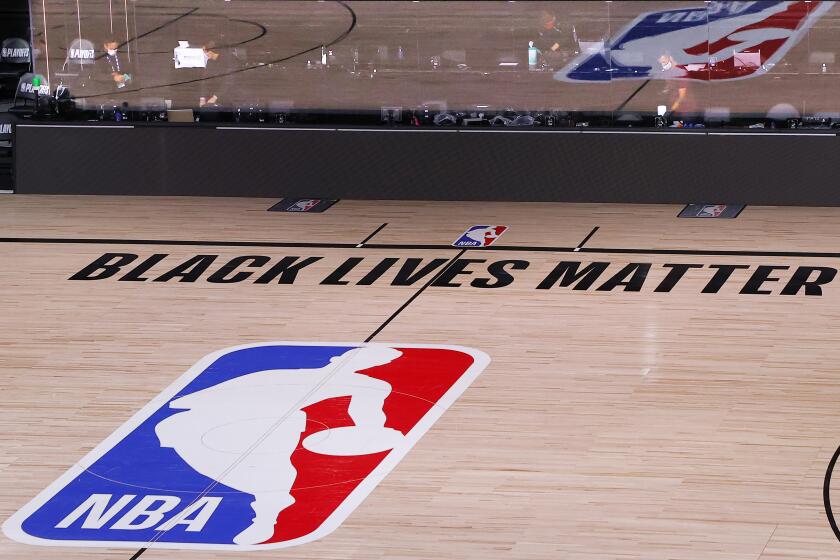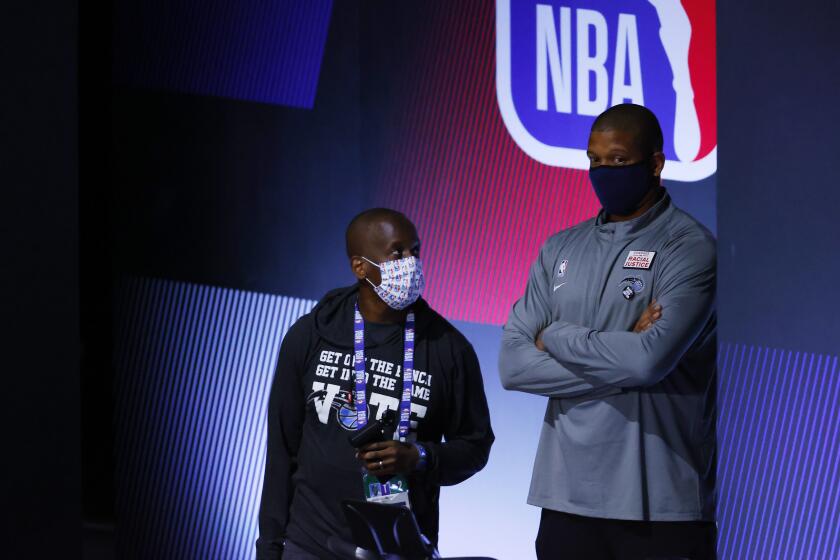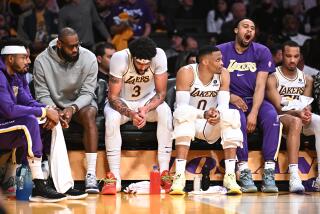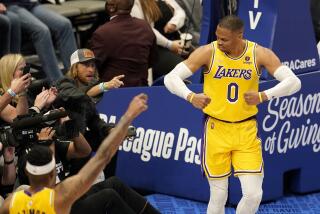News Analysis: NBA season is saved, but social reform remains at forefront for players
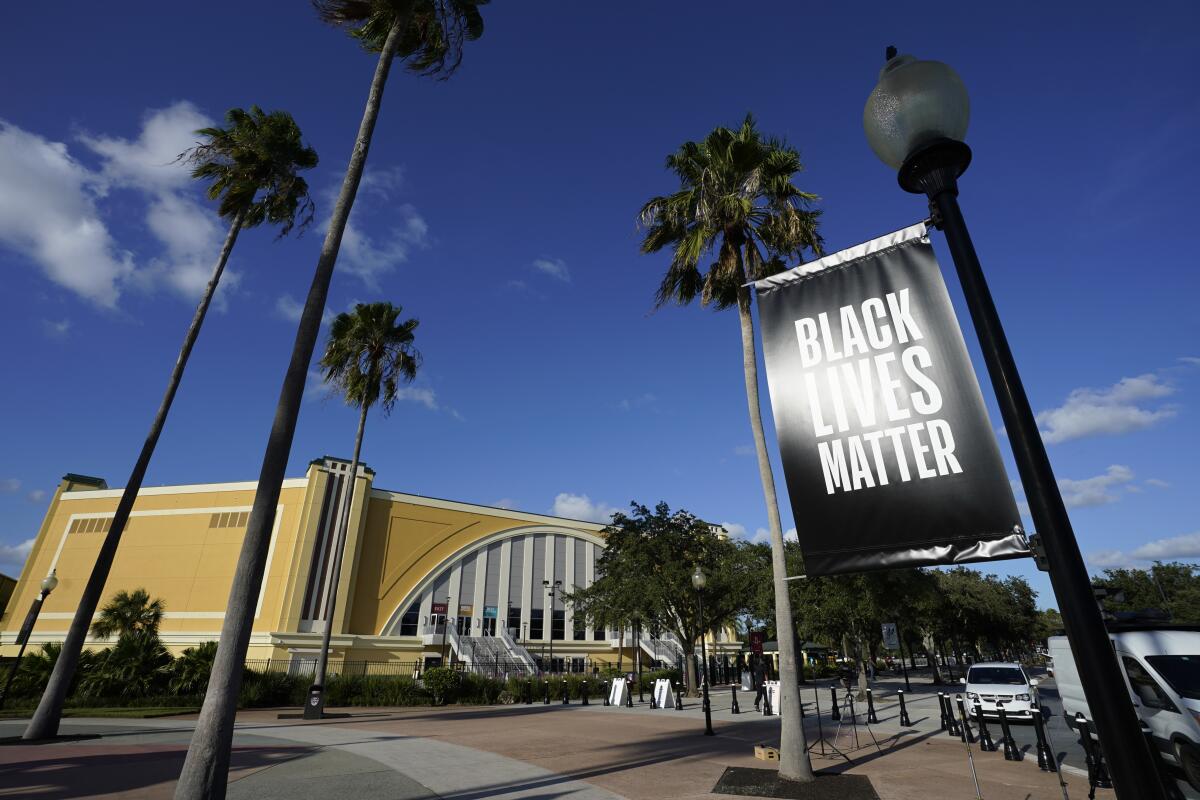
ORLANDO, Fla. — The last time an NBA clock ticked toward zero, one of the favorites for the league’s title refused to leave the locker room, a brazen protest in the wake of another highly publicized police shooting, this one 40 miles from the team’s home.
Because the Milwaukee Bucks decided not to play, to instead use their time to seek reform from state leaders in the aftermath of the Jacob Blake shooting, a different clock began to tick.
Coaches, officials, team and league executives were all wondering the same things. Would the season continue? Would players agree to return to the court while streets in American cities once again erupted in violence amid pleas for change? Would the NBA’s bubble burst?
Unlike the day before when the Lakers and Clippers made it known they were prepared to walk away from the playoffs, the clock never got close to running out. The players emerged with a commitment to continue with the playoffs — a decision made after another round of meetings led to more pragmatism.
“Emotions came down today. We’re going to play,” one NBA veteran told The Times. “We have to be realistic on certain goals, what we can get — if it’s opening every arena for voting. And we have to be OK with if someone else dies. Someone could get shot tomorrow.
“We have to be realistic because this isn’t changing overnight. We are here for the money and to use the platform to bring awareness and stand up for what’s right. That’s why we’re here.”
The league postponed another round of playoff games set for Thursday — including the Clippers’ potential series-clincher against Dallas. In a statement, the NBA said it hoped to resume games Friday or Saturday, though people with knowledge of the situation believe the later date is more likely.
For the second consecutive day, leagues and athletes across the sports landscape continued to demonstrate. Multiple NFL and college football teams, including the Chargers, who were scheduled to work out for the first time at SoFi Stadium, didn’t conduct practices in protest. The WNBA remained sidelined in reflection.
After playing Wednesday, the NHL postponed Thursday’s playoff games. And for the second day in a row, a portion of the baseball schedule was postponed, with 14 teams not taking the field Thursday.
Athletes in the NBA, WNBA, MLB, MLS, NFL, NHL and professional tennis refused to take part in scheduled events in protest of the shooting of Jacob Blake.
Asked about the NBA protest, President Trump disparaged the league’s television ratings.
“They’ve become like a political organization,” Trump said. “And I don’t think that’s a good thing. I don’t think that’s a good thing for sports or the country.”
The NBA’s players and team owners spoke Thursday, with Charlotte Hornets owner Michael Jordan taking on a large role as a bridge between the league’s mostly white governors and the mostly Black players.
People with knowledge of the situation say that there are still NBA players, some prominent, inside the bubble who might leave. Had the players collectively walked out on the remaining games, it would’ve been in violation of the NBA’s collective bargaining agreement and could’ve forced the voiding of the contract. Negotiating a new labor deal with ownership with so much fiscal uncertainty —including the start of next season and the return of fans — would have been difficult on the players’ union.
Among advocates for players to continue playing, some prominent voices believed a wider range of NBA players have the chance to be heard within the bubble. Stars like LeBron James can make an impact wherever he is, but other players who have powerful messages, players like Milwaukee reserve Sterling Brown, need the platform of the NBA playoffs to truly have their message amplified, according to the people familiar with the situation.
Brown was one of the Milwaukee Bucks players to read the players’ statement after they refused to take the court against the Orlando Magic on Wednesday. In 2018, Brown was arrested and tasered after illegally parking in a drug store parking lot. He’s involved in civil litigation against the city of Milwaukee after turning down a $400,000 settlement offer.
Brown’s experience underscores how personal the issue of police brutality is to the NBA. Just last week, video from last year’s NBA Finals showed an Alameda County Sheriff’s deputy shove Toronto Raptors president Masai Ujiri as he tried to enter the court to celebrate with his team. The officer said Ujiri initiated the contact, which the video, released by Ujiri’s legal team, refutes.
Whichever side of the political spectrum you’re on in the NBA protests, imagine what it would take for someone to possibly abandon a lifelong ambition to win a title.
Earlier in the week, Milwaukee’s George Hill questioned why the NBA players were even in Orlando.
“First of all, we shouldn’t have even came to this damn place, to be honest,” Hill told reporters Monday. “… Coming here just took all the focal points off what the issues are.”
The Blake shooting combined with the Ujiri footage mixed with frustration from players who have been separated from friends and family since early July. Multiples people not authorized to speak publicly said restlessness with the bubble environment had exacerbated things in the past week.
Still, amidst the frustration there have been some players vocal about the players’ obligation to stay and finish the season.
“I respect [Hill] for saying that,” Lakers forward Kyle Kuzma said this week. “Everyone has their own opinion. Everyone’s entitled to that. At the same time, playing basketball, that’s our jobs. That’s what we have to do. That’s how we make our incomes. That’s how we continue to make this league work. So that was kind of non-negotiable. We have to come play. But at the same time, he is right. You know, it takes away a little bit from the social injustice and everything, especially prior to the season in the restart, you see there was a lot of momentum on Black Lives Matter and try to fix the corruptness in our society. And obviously it did take away from it, especially after games
“… Everyone in the country, they want a ‘break’ from the social injustice part of our society. But that can’t happen. That’s something that we have to continue to talk about, continue to do. But we gotta be here. It’s our jobs.”
Staff writers Broderick Turner, Andrew Greif and Tania Ganguli contributed to this report.
More to Read
Go beyond the scoreboard
Get the latest on L.A.'s teams in the daily Sports Report newsletter.
You may occasionally receive promotional content from the Los Angeles Times.

